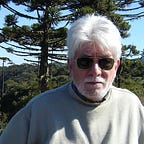Why unlearning journalism
Local journalism now has crucial importance in the democratic process in small and medium-sized cities and in assuming an essential role in producing community social capital, essential for the new digital economy. These social transformations profoundly change how the news flows through the communication channels and consequently directly affect the exercise of journalism. (*)
The profession is quickly ceasing to be the main producer of news, understood here as a specific type of information characterized, notably, by its originality for each person or group of people. Today, news arises from the sharing on social networks of opinions, insights and new data provided by users. But this sharing is fueled by journalistic input produced through investigation, contextualization, checking and interpretation of data, facts, events and ideas arising in the public space of social networks.
If we only take into account the current discourse in the contemporary press, it may seem that little has changed, but if we examine the reality that surrounds us in more detail, we will see that the changes are significant. Until now, the press was the only organization to feed people with information that they used to make decisions.
Now, with the avalanche of information on the internet, social networks have started to occupy a hegemonic space in the production of news, with journalists having the irreplaceable responsibility of functioning as tutors, curators and consultants in the public space of social networks. It is a new function that has become essential in the face of the chaos and complexity of the digital ecosystems and the disinformation cacophony on social networks. Both are responsible for a growing disorientation of people on social media caused mainly by fake news and misinformation.
For local journalism to perform its new role, reporters and editors need to invert their news production process, especially in two key areas of public information. Instead of working based on the agenda of the politicians, corporate CEOs and military, newsmen should prioritize the needs, dreams and worries of ordinary people. The common Citizen, endowed by social networks, is emerging as a key protagonist of the debate in the public social space.
The change in news culture
The crisis in the local press and the formation of so-called ‘information deserts’ (cities without newspapers) has already caught the attention of communication specialists, notably in the United States, due to its social and political consequences in the medium and long term. The problem is that it is not just about “selling” the idea of local journalism to public opinion and decision-makers, because this means enthroning the elitist culture of contemporary journalism in local journalism. The most important thing is to create conditions for ordinary people to understand that they are politically and economically entitled to a new status in the information process. It’s not a gift or a sort of ‘largesse’ from the current establishment.
‘Unlearning’ journalism therefore means recognizing the ongoing change in the digital information ecosystem. It involves more learning from people than assuming the position that the journalist knows what is important to their lives. Learning is essential so that the professional can identify the elements that he or she will use to fuel the debate on social networks. Direct contact with the public, according to academic research already carried out in several countries, generally ends up happening around local themes, where it is possible to identify more precisely each person’s direct experience with the reality that surrounds them.
It is important to take into account another central issue in the “unlearning” or reinvention of journalism. In the conventional press, professionals had almost total control of the development of a news story because there was a low frequency of interactions between reporters or editors and the public, as well as among readers, listeners and viewers. Today, journalists no longer have control over the changes and new formats a piece of news takes when it begins to circulate on social media.
Journalism knows how to edit, investigate, check and contextualize data, facts or events. Those are essential tasks that identify reliable information and very few members of a community know how to execute them. Thus, it seems inevitable the emergence of a sort of symbiosis between audiences and journalists, a relationship that may be viewed as the cornerstone of projects such as local participatory budgeting or the setting up of social capital based on community knowledge.
(*) Based on a Portuguese original text translated by Google Translator and Grammarly.
